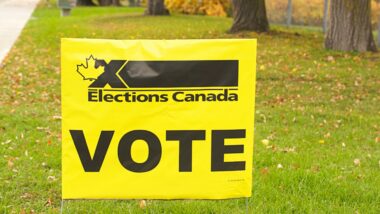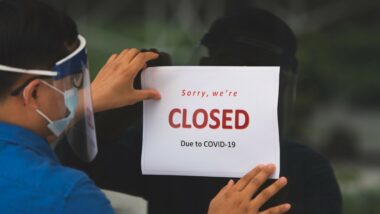Top Class Actions’s website and social media posts use affiliate links. If you make a purchase using such links, we may receive a commission, but it will not result in any additional charges to you. Please review our Affiliate Link Disclosure for more information.
The ongoing global health crisis has opened a Pandora’s box of novel legal questions. The disproportionate COVID-19 death toll among the elderly unleashed a plethora of legal issues, many of which await elucidation by the courts. The deadly toll of the novel coronavirus on Canada’s nursing homes and long term care facilities has led to a growing number of proposed class action lawsuits, and legal experts say these cases will primarily turn on the definition of “reasonable care” during a pandemic.
Duty of Care
Like many legal constructs entrenched in Canadian Common law, the duty of care found its way into Canada’s legal framework from England. The infamous 1932 Donoghue v. Stevenson case, coined the legal notion of “duty of care,” a legal duty to take reasonable care to avoid acts or omissions which could reasonably be expected to injure individuals who “are so closely and directly affected by my act that I ought reasonably to have them in contemplation as being so affected,” Lord Atkin’s iconic ruling stated.
Over the years, Canadian Common law jurisprudence expounded upon the scope of duty of care to the following considerations:
- Whether there is a sufficiently close relationship between the parties to bring the injured party in the reasonable contemplation of the other party such that the other party’s carelessness might cause damage to the injured party, and;
- Whether other reasons, such as public policy concerns, should negate or otherwise limit the duty of care.
Once a duty of care is established, the party owing the duty of care must conduct themselves with reasonable prudence to uphold what is referred to as the “standard of care.” For example, a nursing home resident is owed a duty of care by the nursing home, which includes the company and staff. Where a court finds that the standard of care was not met, such as, where staff did not take precautionary measures, like wearing a mask to prevent the spread of COVID-19, the nursing home can be held liable in negligence.
Notably, however, the standard of care depends on the individual who owes the duty of care. For example, a physician is held to a different standard than a banker. Additionally, certain circumstances may alter the standard of care, such as a health crisis. In this complex realm of duties and standards, questions arise as to who owes a duty of care to those most affected by COVID-19, and what the standard of care is during a global pandemic.
Government Duty of Care
Government responses to the pandemic, as well as measures implemented by various government bodies affect the propagation of COVID-19, as well as its repercussions on certain populations. Canadian Common law accepts that both federal and provincial governments owe a duty of care toward the general population.
Following the early 2000’s SARS outbreak, Canada saw numerous class action lawsuits against the government of Canada due to inappropriate or confusing directives, the reduction of infection control systems, and other measures negatively impacting certain populations. The outcome of these cases shed light on the viability of current claims against the government.
A leading case of the time, Abarquez v. Ontario, was a class action lawsuit filed by nurses and their families against the province of Ontario and the federal government. The class action took issue with many of the claims found among the class action lawsuits against provincial governments during that pandemic.
In response to the class actions, the Government of Canada successfully argued that it was acting in a policy-making capacity during the SARS outbreak (as opposed to an operational one), and it therefore did not owe a private duty of care to hospital patients and staff. Additionally, the Ontario government successfully argued that if it did owe a private duty of care to staff or patients, it would be in conflict with its overarching public duty of care owed to the public at large, thus raising the public policy consideration to deny a duty of care.
SARS class actions brought against provincial and federal governments were largely unsuccessful, because public bodies were held not to owe a private duty of care to patients, staff or other population groups, despite the government having undertaken a plan to respond to the disease, which consequently affected certain populations.
Another lawsuit was brought against the Canadian government during the H1N1 outbreak in Adam, Abudu v. Ledesma-Cadhit et al. Here, the plaintiffs sued 
“The government mandate […] is to promote and protect the health of the entire population in the context of the spread of communicable diseases generally […] The legislative functions are exercised for the benefit of the public as a whole and do not give rise to a private law duty of care to particular individuals or sub-groups of the public.”
Health Institutions’ Duty of Care
Although the SARS outbreak did not lead to a myriad of class action lawsuits against nursing homes and long term care facilities, court decisions regarding negligence claims against hospitals and physicians in the aftermath of the crisis cast light on COVID-19 lawsuits.
The Abarquez v. Ontario case also brought claims against hospitals and physicians, stating that the defendants failed to:
- Have an adequate plan of action to deal with the control, diagnosis and treatment of SARS;
- Require the use of masks, gowns and gloves by their servants, agents and/or employees during the treatment of patients diagnosed with respiratory symptoms;
- Immediately isolate all patients known or suspected to have SARS;
- Etc.
In contrast to the outcome of the claims against the government, the Court established that hospitals have Common law and statutory obligations that establish a private duty of care to patients and staff. A ruling in a similar case also underscored that care facilities and professionals are liable for negligence at the operational level. For example, where a long term care facility fails to apply or enforce health directives, the institution can be held liable for resulting harm.
Health institutions also owe particular duties toward patients, such as the duty to provide treatment, for which they can be found liable if not met. Although most COVID-19 standard of care questions will need to be answered by the courts, previous pandemic class actions highlight that health institutions need to abide by government directives as well as legislative duties, which often include the use of personal protective equipment and health emergency planning.
What Should Health Institutions Do?
Health institutions, such as hospitals and care facilities, have a duty to ensure safe working conditions, which includes putting in place appropriate safety precautions for personnel. Additionally, they must ensure the safety and care of patients. The Public Health Agency of Canada issued an interim COVID-19 guidance for long term care facilities to help prevent the transmission of COVID-19 in health institutions, including nursing homes.
According to the guidance, care facilities should focus on efforts to keep the facility free of COVID-19 during the pandemic through the implementation of various measures, including, but not limited to the following:
- Prompt identification of all persons with signs and symptoms of COVID-19;
- Institution of measures to prevent infections (e.g., routine practices including hand hygiene, point of care risk assessment, implementation of Droplet and Contact precautions, use of N95 respirators, etc.); and
- Determination of the causal organism.
The Public Health Agency urges that the guidance should be read in conjunction with relevant provincial, territorial and local legislation, regulations and policies. Indeed, to mitigate damages and promote the safety of patients and staff, health institutions should heed government guidance, as well as follow relevant provincial legislation. This will help ensure that health institutions’ duty of care is met.
In an interview with the Montreal Gazette, lawyer Michael Smitiuch said that nursing homes can be held accountable for unnecessary and preventable deaths. Learning from the SARS and H1N1 Canadian class action lawsuits, long term care facilities and nursing homes may likely need to take extra measures and ensure that statutory duties are met in addition to requirements and guidelines issued by health ministries, the World Health Organization and other similar bodies.
Recent class action lawsuits have been filed against nursing homes across Canada, alleging that residents were neglected and left to die alone of COVID-19. According to The Star, new data reveals that 82 % of all Canadian COVID-19 deaths occurred in long term care settings. Indeed, witness reports and class action lawsuits against nursing homes and care facilities reveal that some of them may not be meeting the standard of care owed to residents and staff.
What do you think the standard of care owed to residents and staff in nursing homes is? Do you think the duty of care during a pandemic should be the responsibility of the government or health institutions? Tell us your thoughts in the comment section below!


















One thought on COVID-19 Standard of Care
add me